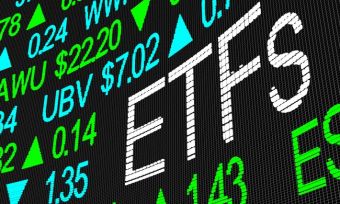Compare Exchange Traded Funds (ETFs)
Helpful Information on ETFs
What is an Exchange Traded Fund (ETF)?
An exchange traded fund (ETF) is a pooled investment option that can be traded on the share market. Like a managed fund, an ETF allows you to invest in a basket of assets or companies with a single trade.
The federal government’s Moneysmart website says most ETFs are “passively managed” which means they’re designed to move in line with an index or commodity, such as the S&P/ASX 200 or the gold price.
This is in contrast to many managed funds, which are often more actively managed, which means a fund’s trades are overseen by a professional fund manager whose aim is to outperform the relevant market index.
Consequently, ETFs can have significantly lower management fees than an actively managed fund.
There are a variety of ETFs available in Australia and listed on exchanges abroad, providing investment exposure to anything from an entire market (e.g. S&P/ASX 300 or FTSE China 25) to a specific sector such as cybersecurity or healthcare.
For example, if you invested in an ETF such as the ASX:STW, that tracks the S&P/ASX 200, you are in a way investing in each of the top 200 companies traded on the Australian Stock Exchange (ASX).
But it’s important to note that when you invest in an ETF you own shares in the fund, not the underlying company shares, commodities or other assets owned by the fund. You will, though, get a share in any dividends the companies pay to the fund.
How do Canstar’s ETF Awards work?
Canstar’s Provider of the Year Award for Exchange Traded Funds recognises the ETF provider that has cumulatively scored highest in our assessment which considers how closely an ETF tracks its benchmark, associated costs and fees, as well as the information and educational support they provide to investors.
You can view the ETF Award for Provider of the Year here.
Author: Nina Rinella
As Canstar’s Editor-in-Chief, Nina heads up a team of talented journalists committed to helping empower consumers to take greater control of their finances. Previously Nina founded her own agency where she provided content and communications support to clients around Australia for eight years. She also spent four years as the PR Manager for American Express Australia, and has worked at a Brisbane communications agency where she supported dozens of clients, including Sunsuper and Suncorp.
Nina has ghostwritten dozens of opinion pieces for publications including The Australian and has been interviewed on finance topics by the Herald Sun and the Sydney Morning Herald. When she’s not dreaming up ways to put a fresh spin on finance, she’s taking her own advice by trying to pay her house off as quickly as possible and raising two money-savvy kids.
Nina has a Bachelor of Journalism and a Bachelor of Arts with a double major in English Literature from the University of Queensland. She’s also an experienced presenter, and has hosted numerous events and YouTube series.
You can follow her on Instagram or Twitter, or Canstar on Facebook.
You can also read more about Canstar’s editorial team and our robust fact-checking process.
Josh Sale, Exchange Traded Funds Ratings Manager
 As Canstar’s Ratings Manager, Josh Sale is responsible for the methodology and delivery of Canstar’s Exchange Traded Funds Star Ratings and Awards. With tertiary qualifications in economics and finance, Josh has worked behind the scenes for the last five years to develop Star Ratings and Awards that help connect investors with the right product for them.
As Canstar’s Ratings Manager, Josh Sale is responsible for the methodology and delivery of Canstar’s Exchange Traded Funds Star Ratings and Awards. With tertiary qualifications in economics and finance, Josh has worked behind the scenes for the last five years to develop Star Ratings and Awards that help connect investors with the right product for them.
Josh is passionate about helping people get hands-on with their finances. Josh has been interviewed by media outlets such as the Australian Financial Review, news.com.au and Money Magazine.
You can follow Josh on LinkedIn, and Canstar on Twitter and Facebook.
This content was reviewed by Editor-in-Chief Nina Rinella as part of our fact-checking process.
Important information
For those that love the detail
This advice is general and has not taken into account your objectives, financial situation or needs. Consider whether this advice is right for you.











